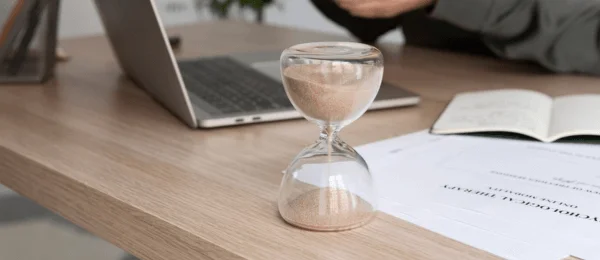
Marijuana Detox: How to Detox from Marijuana & How Long Will It Take?
Quitting marijuana after prolonged use can be an incredibly challenging process to go through alone. Without proper medical and emotional support, withdrawing from marijuana can feel almost impossible. The good news is that with the right help, marijuana detox does not have to feel impossible or dangerous.
Resilient Recovery Rehab Center offers comprehensive marijuana addiction treatment programs, professional detox, and rehabilitation strategies based on each patient’s specific needs.
Our mission is to provide patients with the tools and support they need for long-term sobriety, health, and well-being following weed withdrawal treatment.
This article outlines what to expect during a marijuana detox and withdrawal signs. We’ll also determine how long the detox journey will be. Taking that first step towards detox can be scary, but it also brings hope and the promise of positive change. You don’t have to take that leap alone when experienced help is available.
What Are the Effects of Marijuana?
Marijuana, also known as weed, can have various physical, psychological, and long-term effects. The active ingredient in weed, THC, activates the brain’s reward system, leading to the release of dopamine and creating a pleasurable high. However, repeated weed use can cause changes in the brain and lead to long-term problems.
Physically, marijuana can cause increased heart rate, red eyes, dry mouth, increased appetite, and slower reaction time. Psychologically, marijuana can lead to euphoria, relaxation, and altered senses of sight, smell, taste, etc. With long-term or heavy use, marijuana can also cause impaired brain development, anxiety, depression, and lower life satisfaction.
What Is Marijuana Dependence?
Dependence on marijuana develops when someone builds up a tolerance, experiences withdrawal symptoms when stopping use, uses more marijuana or for longer than intended, is unable to quit or control their use, and spends excessive time getting, using, or recovering from marijuana.
According to the National Institute on Drug Abuse (NIDA), approximately 30% of marijuana users exhibit signs of addiction, and the risk increases to 1 in 6 for people who start using in their teens. Several factors increase the likelihood of becoming dependent:
- People with a family history of substance abuse disorders have a higher risk.
- Marijuana dependence is more common in people with conditions like depression, anxiety, PTSD, ADHD, and schizophrenia.
- Marijuana usage before the age of 18 makes dependence more likely.
- Heavy use of marijuana (i.e., multiple times a day), using laced weed or high-THC strains, and ingesting through high-risk methods like dabbing increase dependence risk.
Marijuana dependence can negatively impact physical and mental health, work/school performance, relationships, and finances. However, personalized treatment programs can help people overcome dependence.
How Does Weed Addiction Treatment Work?
Marijuana addiction treatment uses a variety of therapies and programs to help people stop using the drug and avoid relapse. Some of the main components of marijuana addiction treatment include:
Weed Detoxification
The first step in treatment is detoxification, which involves stopping the use of the drug under medical supervision. Detox can help manage symptoms of marijuana withdrawal and drug cravings.
The best way to detox from weed out of your system is via an inpatient detox program supervised by a medical professional since this ensures the detox methods used are tailored to the individual.

Behavioral Therapies
Behavioral therapies help patients engage in the treatment process, modify their attitudes and behaviors related to drug use, and strengthen healthy life skills. Some common behavioral therapies include:
Cognitive Behavioral Therapy (CBT)
Helps patients recognize, avoid, and cope with the situations likely to trigger drug use.
Motivational Enhancement Therapy
Uses motivational interviewing techniques to increase readiness for change.
Contingency Management
Uses positive reinforcement such as rewards or privileges to encourage abstinence.
Marijuana Withdrawal Support Groups
Peer support groups like Narcotics Anonymous provide ongoing support during and after treatment. Meetings offer a venue for sharing experiences and advice.
Medications
There are currently no FDA-approved medications for treating marijuana addiction. However, medications may be used to manage withdrawal symptoms like irritability, sleep problems, and cravings.
Addressing Co-Occurring Disorders
Many people with marijuana addiction also have other co-occurring mental health disorders. Treatment should address these other disorders through integrated care and medications when appropriate.
Combining counseling, peer support, and other therapies provides a comprehensive approach to managing marijuana addiction. Treatment plans should be customized to meet each individual’s needs. With the right treatment and support, recovery is possible.
Marijuana Detox Withdrawal Symptoms
Marijuana detox, or weed detox, can cause several withdrawal symptoms as your body readjusts to functioning without the drug. Marijuana withdrawal symptoms include being easily frustrated or agitated as your brain’s dopamine levels fluctuate during detox.
This can make you prone to mood swings. Weed also impacts GABA and glutamate levels in the brain, neurotransmitters that regulate anxiety. Stopping weed use can lead to heightened anxiety, restlessness, and nervousness.
When you stop using marijuana, ghrelin production decreases, reducing appetite, which can lead to weight loss during detox.
Some people experience a feeling of inner restlessness during weed detox, potentially leading to sleep difficulties. The urge to use marijuana can also contribute to restlessness.
Marijuana helps induce sleep, so stopping it can lead to insomnia and sleep disruptions. Vivid dreams and night sweats are also common during marijuana detox.
How Long It Takes To Detox Weed
You may be wondering, “How long does it take for the symptoms to disappear?” and this worry is valid, seeing how purging weed from your system can be an unpleasant experience.
Weed has varied effects on everyone, and the body’s ability to eliminate THC, the active compound in marijuana, varies from person to person.
Therefore, the amount of time it stays in your system also varies. The severity and duration of withdrawal symptoms also depend on the extent of your substance use.
Symptoms usually begin within 1-3 days of quitting and can last up to two weeks. Remember that withdrawal is temporary and a normal part of the detox process.
There are two phases to the process:
Acute Withdrawal Phase (First Week)
The first week after quitting marijuana is often the most difficult part of detoxing. This acute withdrawal phase usually peaks within the first 3-5 days. For heavy users, the first few days can feel unbearable.
Mood swings, anxiety, insomnia, and loss of appetite make it tough to function normally without marijuana. However, symptoms tend to gradually improve over the week as the THC leaves your system. Exercising, hydrating, and eating nutritious foods can help you get through this initial acute phase.

PAWS (Post-Acute Withdrawal Syndrome)
After getting through the worst of acute withdrawal, you may think you’re in the clear. However, many people experience a phase known as post-acute withdrawal syndrome (PAWS), starting about 7-10 days after quitting. PAWS can come and go for several months.
Common PAWS symptoms include mood swings, anxiety, irritability, trouble concentrating and cloudy thinking, tiredness, lack of motivation, cravings for marijuana, and sleep disruptions. PAWS occurs as your brain chemistry gradually returns to normal after being altered by long-term marijuana use.
It takes time for your dopamine and stress hormone levels to stabilize. Exercising, practicing mindfulness, staying busy, and avoiding triggers can help you manage PAWS. The duration varies, but symptoms should continue improving as long as you abstain from marijuana.
Having a strong support system is key to getting through both the acute and PAWS phases of weed detox. But you don’t have to tough it out alone – treatment programs provide medically supervised detox, counseling, relapse prevention skills, and aftercare planning. Don’t hesitate to reach out for help.
Can You Detox Weed Naturally?
While many people opt for commercially available detox products and detox solutions, there is also a growing trend in using natural methods of detoxing from weed, such as natural detox drinks,
Increasing water intake is one of the best natural THC detox methods. Drinking lots of water aids in the body’s natural detox process and helps remove toxins and THC from your system. It is important to remember, however, that simply drinking water may not be enough to remove the side effects of weed thoroughly.
Physical exercise increases metabolism, which aids in the breakdown of fat cells where THC may be stored. However, it is critical to time exercise carefully if you want to pass a drug test, as intensive physical activity immediately before the test may briefly boost THC levels in the urine. Adopting a balanced diet can also aid in a natural detox from marijuana and encourage overall sobriety.
While these natural detox options may help with the effects of marijuana use, everyone’s experience will be different.
Achieving general sobriety via a natural detox process is achievable, but keep in mind that effectiveness varies from person to person. It is critical to consider individual situations and demands when trying to naturally detox from weed.

The Risks of Detoxing from Marijuana on Your Own
Purging THC in your system and detoxing from marijuana is difficult both physically and psychologically, so attempting it without medical supervision and support greatly increases the chances of failure and serious health risks.
Using THC detox drinks, detox pills, weed detox kits, and DIY methods to detox from weed naturally may come with concerns such as possible side effects,
It’s strongly advised to detox in a professional rehab facility for the safest withdrawal process. Some of the key risks include:
Relapse
The cravings and withdrawal symptoms during weed detox can be intense, especially in the first few days. Without support, many find it nearly impossible to withstand the urges to use it again. Relapsing can disrupt the detox process and make it longer and more difficult.
Severe Marijuana Withdrawal Symptoms
Detoxing at home means dealing with withdrawal symptoms like anxiety, irritability, insomnia, sweating, and depression completely on your own. This can be miserable without medical assistance to alleviate symptoms.
Lack of Medical Supervision
Detoxing without doctors present is risky, especially for long-term heavy users. Abruptly stopping marijuana use can potentially cause seizures, hallucinations, hypertension, and other medical complications that require urgent care.
Mental Health Issues
Marijuana withdrawal often temporarily exacerbates underlying mental health problems like depression, bipolar disorder, and suicidal thoughts. Trained medical staff can monitor mental status and stabilize psychological symptoms if necessary. At home, these issues could spiral out of control.
Post Marijuana Detox: Tips
Getting clean from marijuana is an important first step, but maintaining sobriety long-term requires diligence and commitment. It’s crucial to have a relapse prevention plan in place to reduce the risk of returning to marijuana use. Here are some key strategies:
Identify Triggers for Substance Use
It’s helpful to gain awareness around personal triggers that can lead to cravings or relapse. Common triggers include social situations, certain people or places, boredom, stress, and emotional states like anxiety or depression. Knowing your unique triggers makes it possible to prepare for or avoid high-risk scenarios.
Develop Healthy Coping Strategies
When triggers arise, have alternative coping skills ready instead of defaulting back to marijuana. This could involve calling a support person, using relaxation techniques, exercising, engaging in a hobby, or utilizing cognitive strategies to challenge unhealthy thought patterns. Have an arsenal of healthy coping mechanisms to replace marijuana.
Attend Support Groups
Connecting with others in recovery provides community, accountability, and guidance. Groups like Marijuana Anonymous follow a 12-step model to offer social, emotional, and spiritual support. Having a forum to share experiences, gain perspective, and receive encouragement can solidify recovery.
Make Lifestyle Changes
It may be necessary to make significant lifestyle adjustments to support recovery and prevent relapse. This can mean changing social circles, avoiding temptation, altering daily routines, and focusing on self-care and personal growth. For some, a geographical change is warranted.

Continue Treatment
The ongoing treatment gives the best chance for sustained recovery. This may involve regular therapy, medication management, case management, and recovery coaching. Remaining engaged in the treatment process provides essential monitoring, motivation, and skills-building to prevent relapse over the long term. Recovery is a lifelong journey.
Finding The Best Marijuana Detox Center For You
When looking for a weed detox center, it’s important to find one that provides comprehensive care to help you through the difficult process of withdrawal and recovery. The best detox centers offer much more than just medical supervision of detox. Key things to look for include:
Professional Medical And Psychological Care
Detoxing from marijuana and managing withdrawal symptoms is best done under the care of addiction professionals, including doctors, nurses, and therapists. They can monitor your progress, provide medications to ease symptoms and deliver psychological support to help address any underlying issues contributing to addiction.
Comfortable Accommodations
Detox can be an uncomfortable process, physically and emotionally. Choose a center with welcoming, home-like accommodations to make your stay as relaxing as possible. Comfortable bedrooms, shared community spaces, healthy meals, and amenities can aid the recovery process.
Individualized Treatment Plans
Every person’s needs are different when it comes to effective addiction treatment. The best detox centers develop customized treatment plans that address your unique situation. This includes assessing your medical needs, and personal challenges, and establishing goals for your recovery.
Aftercare Planning
Detox is just the first step on the road to sobriety. Quality detox centers have staff that can refer you to ongoing addiction treatment, counseling, and other services to provide continued support after detox. This improves the chances of maintaining long-term sobriety.
Family Services
Detox doesn’t just impact you. It affects family members too. Look for a center offering family education, counseling, and other services to help rebuild addiction-related relationships. Support from loved ones is vital for recovery.
Choosing the right detox center can mean the difference between suffering through withdrawal alone versus having a strong support system through the process. It pays to do your research to find the best fit for your needs. With the right help, you can get through detox and look ahead to a sober life.

Why Choose Resilient Recovery For Detox and Recovery
Resilient Recovery Rehab Center has been helping individuals recover from addiction for many years. Our experienced staff are dedicated to providing the highest quality care using evidence-based treatment methods.
Our medical detox services include medications to relieve withdrawal symptoms from marijuana detoxification, as well as preparation for recovery after detox.
At Resilient Recovery, we take a holistic approach to addiction treatment. Our programs address the physical, mental, emotional, and spiritual aspects of recovery.
We utilize a variety of therapeutic techniques, including individual and group counseling, cognitive behavioral therapy, experiential therapies, and 12-step integration. Medication-assisted treatment is also available for certain addictions.
Family involvement is a critical component of success. Resilient Recovery offers family programs, including counseling, education, and support groups. We understand addiction impacts the whole family and we want to help heal relationships.
Paying for treatment should not be a barrier to receiving care. We accept most major insurance plans and work with each client’s carrier to maximize coverage.
We also provide financing options, including low monthly payments. Our goal is to make treatment affordable and accessible to all who need it.
Get Help Now
The negative effects caused by heavy marijuana use don’t have to keep affecting your life. The compassionate team at Resilient Recovery is ready to help you or your loved one throughout the detox period.
With years of knowledge and proven results, we’re convinced we can help you safely detox from marijuana misuse and change your life for the better. Call us today at (844) BESOBER (237-6237) to learn more about our individualized treatment plans and how we can help you recover.
